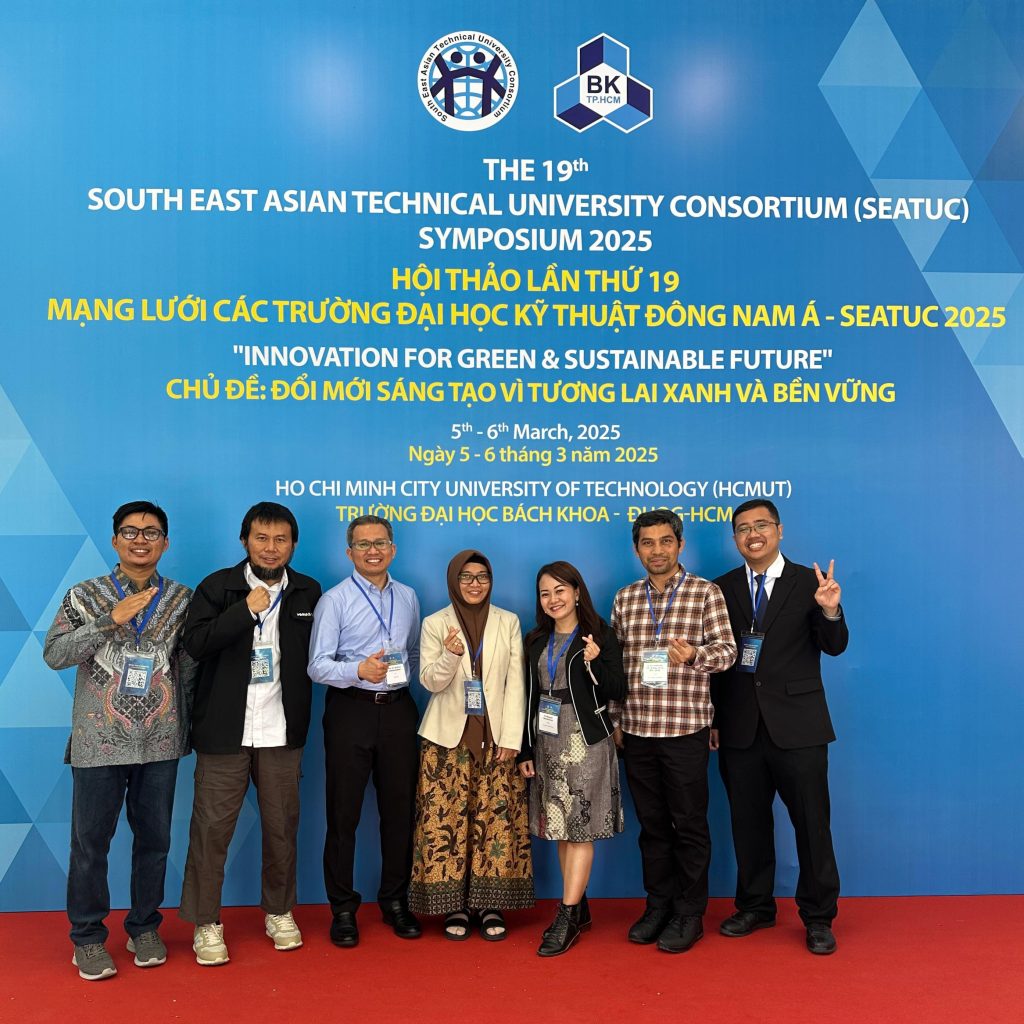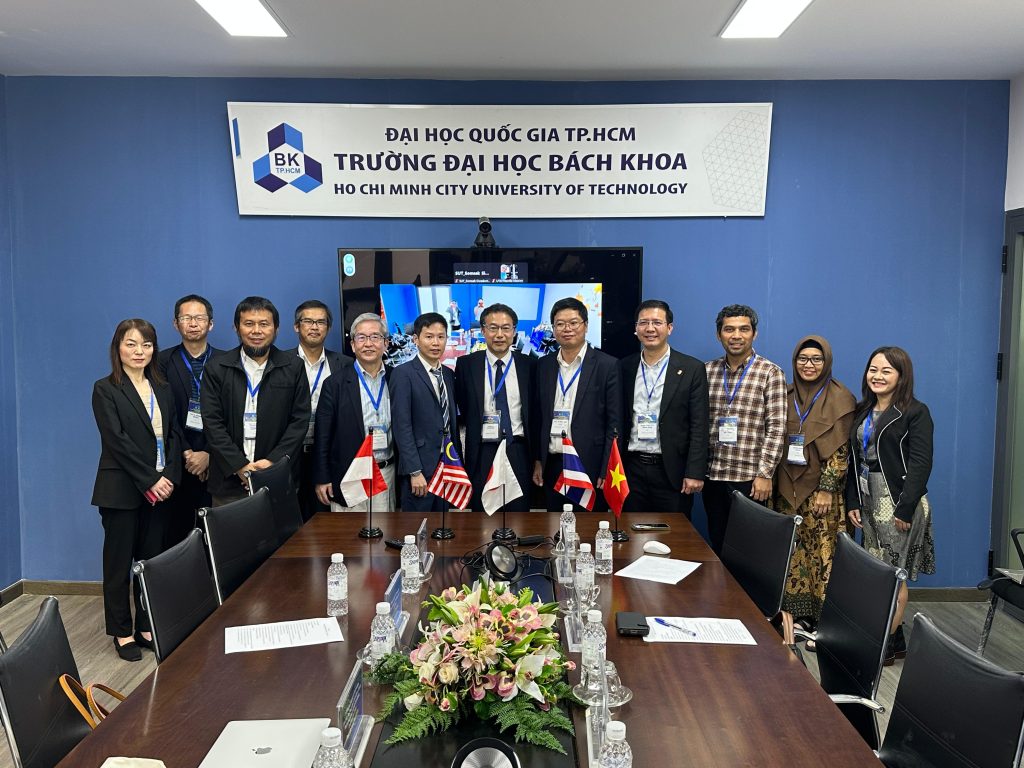On March 5–6, 2025, a delegation from Universitas Gadjah Mada (UGM) participated in the 19th Southeast Asian Technical University Consortium (SEATUC) in Ho Chi Minh City, Vietnam. The event, themed “Innovation for Green and Sustainable Future,” showcased discussions on innovation and sustainability. Among the UGM delegation team was Dr. Ir. Tri Mulyani Sunarharum, S.T., a lecturer from the Department of Architecture and Planning. She was accompanied by four other UGM representatives: Ir. Ali Awaludin, S.T., M.Eng., Ph.D., IPU., ACPE; Prof. Dr. Eng. Ir. Herianto, S.T., M.Eng., IPU., ASEAN Eng.; Dr. Ahmad Nasikun, S.T., M.Sc.; and Prof. Bertha Maya Sopha, S.T., M.Sc., Ph.D., IPM, ASEAN Eng.
The SEATUC event is an annual symposium within the framework of the SEATUC Consortium that fosters collaboration and innovation among its member universities. Alongside UGM, participants included institutions such as Shibaura Institute of Technology (Japan), Hanoi University of Science and Technology (Vietnam), Ho Chi Minh City University of Technology (Vietnam), King Monkut’s University of Technology Tonburi (Thailand), Suranaree University of Technology (Thailand), Universiti Teknologi Malaysia (Malaysia), and Institut Teknologi Bandung (Indonesia). Attendees engaged both on-site and virtually.
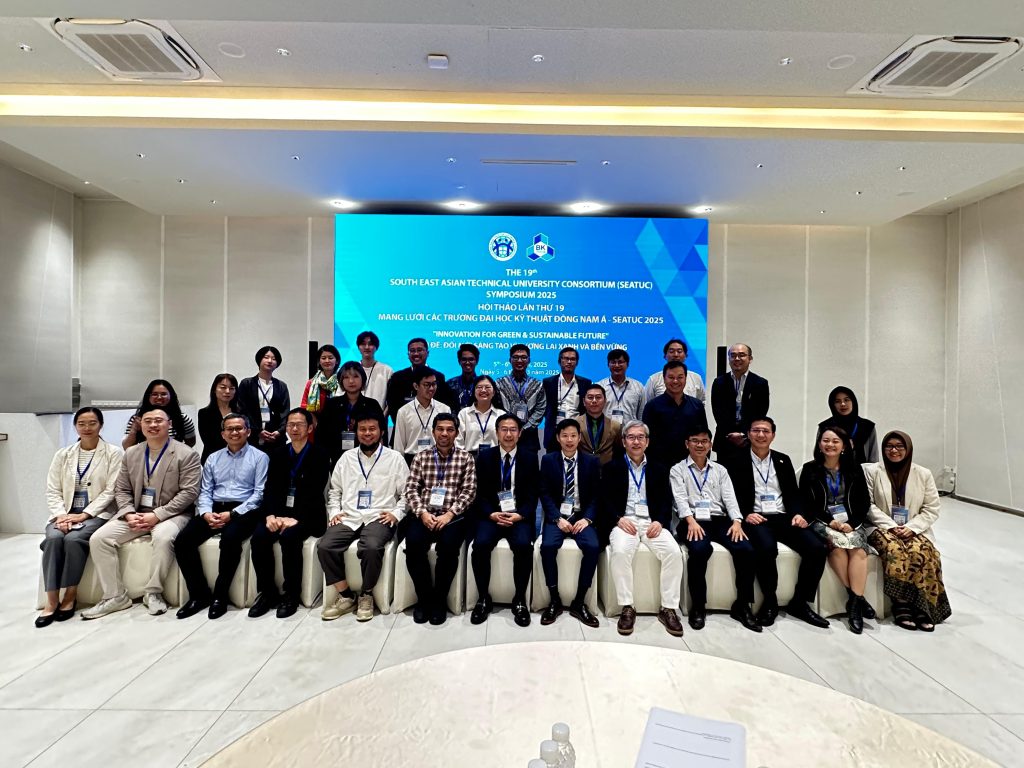
UGM’s involvement in SEATUC serves as an important step toward exploring cutting-edge research trends, expanding academic and industrial partnerships, and reinforcing its role in international research initiatives within the scope of SEATUC and beyond.
The first day (5/3) featured a workshop titled “Entrepreneurial University and How Universities Shape the Innovation of Tomorrow”, which highlighted the role of academic institutions in fostering sustainable innovation ecosystems. This aligns with SDG 9, focusing on innovation in sustainable industrialization and infrastructure development to improve the quality of life and economy. Additionally, participants engaged in a presentation session and interactive discussions, sharing innovative research and insights into emerging technologies.
The second day (6/3) included discussions on “Innovations Toward Net-Zero Energy” and “Innovation for Sustainable Development,” exploring solutions for achieving net-zero emissions in the energy and industrial sectors. These themes are connected to SDGs 7 (clean and affordable energy) and 9 (industry, innovation, and infrastructure). Further activities included workshops on “Biohydrogen Production Towards Net-Zero Strategy” and “The Role of Additive Manufacturing,” addressing environmentally friendly technologies and their modern applications. The presentation session and interactive discussions also continued after the workshop.
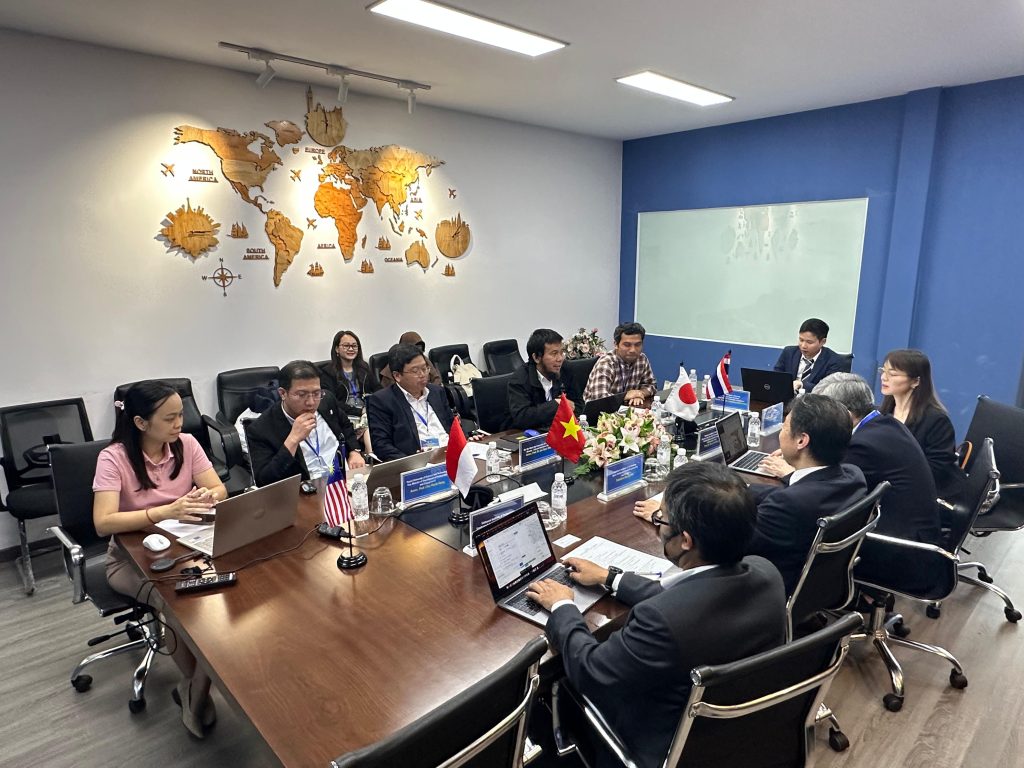
The symposium concluded with a meeting of SEATUC representatives to discuss future collaborations and strategic policies. Delegates committed to enhancing research and sustainable technology development to achieve net-zero emission goals.
In summary, UGM’s participation in SEATUC strengthens international partnerships and underscores the university’s commitment to research, innovation, and academic development. The insights and collaborations fostered through this event are expected to drive impactful contributions to industry and society, in line with SDG 17 on global partnerships to achieve goals.
